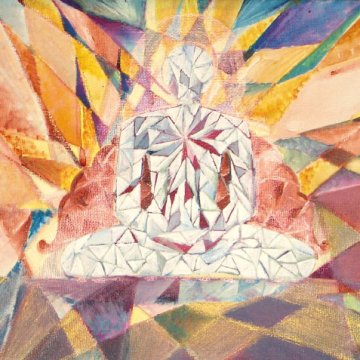Learning Area
Jain Philosophy, History and Anthropology
Do you want to learn more about a spiritual tradition that is in line with your values of non-violence, compassion, and respect for all forms of life? Do you want expert instruction in this tradition, from learned scholars from around the world? Are you maybe even considering becoming a Jain scholar? Acharya Sushil Kumar was the pioneer who brought Jain teachings to the West to familiarize people outside of India with the importance of compassion and non-violence and in doing so inspired structured learning of Jain teachings. In this spirit, and no matter your level of commitment, here at Arihanta Academy our courses in Jain Philosophy, History and Anthropology bring you privileged access to renowned experts from the field of Jain studies and allied fields of inquiry. Students master foundational philosophical principles, facts of historical significance, particularities of Jain culture, and many other fundamental dimensions of the Jain tradition. They also stay up to date with the latest expert research in the field and prepare to perhaps become a future scholar of the Jain tradition themselves. Students are also given the opportunity to study allied traditions including Yoga, Hinduism, Buddhism, and Sikhism and to understand how the Jain tradition historically evolved in relationship to these Indic traditions. Furthermore, they learn how to embody the critical insights and principles of each of these traditions in their own life for the betterment of themselves and society. Arihanta Academy also offers the chance to study the ancient and modern languages through which Jain philosophy has been mediated for centuries. In this regard, in our language courses, students will learn how to translate ancient, classical, medieval and modern Jain texts. Such linguistic access provides deeper and penetrating truths into Jain principles and doctrines, as well as demonstrates to students how Jain thought has evolved through time in relationship to other textual religious traditions. Whether you are Jain or not, studying the tradition’s philosophy, history, and anthropology is a transformative and intellectually and spiritually stimulating experience. In doing so, students become critical and yet empathetic thinkers capable of situating the Jain tradition within broad global as well as more specific local contexts, and feel empowered to bring the tradition into new, and yet necessary unchartered territory. They will leave with the ability to contextualize the importance of compassion and non-violence in daily life, to ask critical questions, engage their communities thoughtfully, and to engage in dialogue with other scholars of the Jain tradition.
a


 Christopher Miller, PhD
Christopher Miller, PhD Cogen Bohanec, MA, PhD
Cogen Bohanec, MA, PhD Ellen Gough, PhD
Ellen Gough, PhD Patricia Rodrigues de Souza, PhD
Patricia Rodrigues de Souza, PhD Jeffery Long, PhD
Jeffery Long, PhD Archana Jain Jerath
Archana Jain Jerath Vandana Jain
Vandana Jain Alba Rodriguez
Alba Rodriguez Dinesh Jain
Dinesh Jain Manoj Jain, MD
Manoj Jain, MD